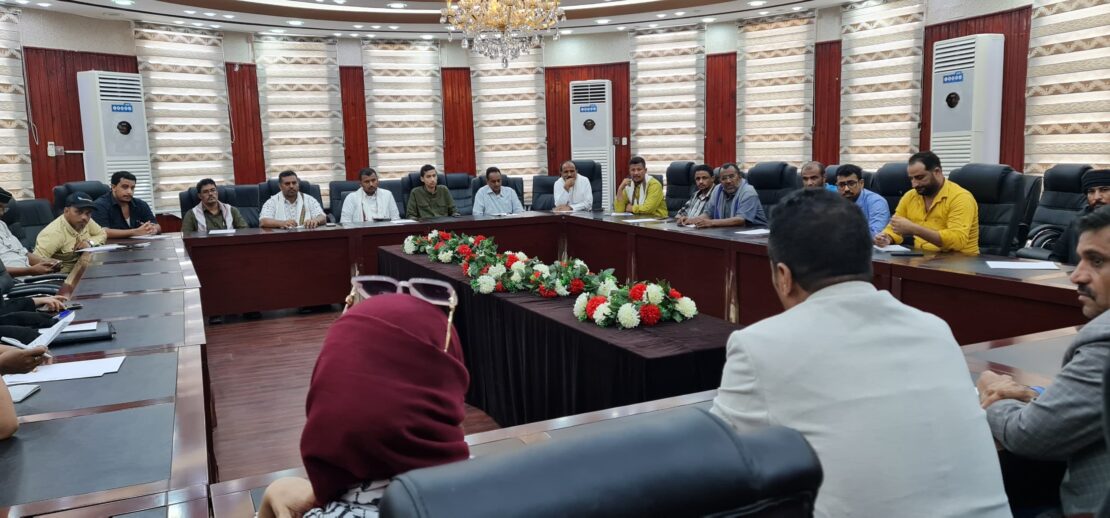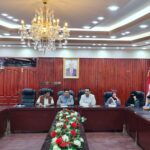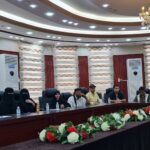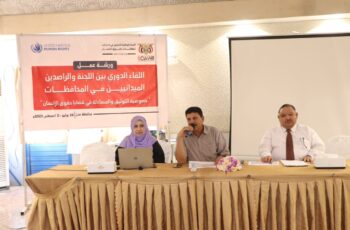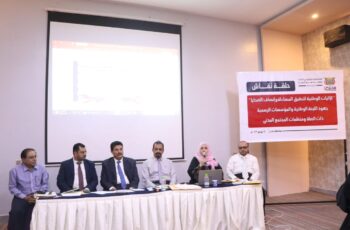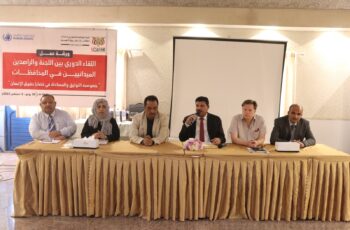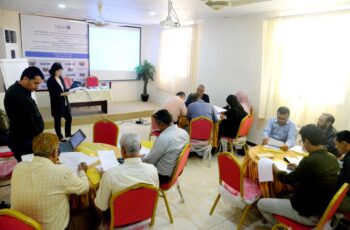NCIAVHR Holds Extensive Meeting with CSOs in Al Mahrah
Al Mahrah | May 30, 2024
Today, the National Commission to Investigate Alleged Violations of Human Rights (NCIAVHR) held an extensive meeting with civil society organizations working in the fields of monitoring and documenting human rights violations, and providing developmental and legal empowerment to various segments of society in Al Mahrah Governorate, eastern Yemen. The meeting included the participation of 30 civil society organizations.
During the meeting, the Vice-Chairman of the Commission, Judge Hussein Al-Mashdali, reviewed the key areas of work and the achievements of the Commission in the past phase of its operations. Mr. Al-Mashdali also outlined the Commission’s aim to expand its investigative efforts across multiple regions to reach all victims throughout Yemen’s governorates.
Moreover, Judge Al-Mashdali highlighted the nature of the Commission’s field visit to Al Mahrah, emphasizing its role in strengthening coordination and cooperation with civil society, particularly in information gathering, reducing violations, and improving the performance of official institutions involved in law enforcement and human rights protection.
Commission Member Judge Ishraq Al-Maqtari emphasized the active role of Yemeni civil society in promoting human rights and the early documentation of violations, including those related to international human rights law. She noted the importance of hearing close-up proposals for cooperation and networking with active institutions in Al Mahrah.
The expansive meeting, the first of its kind in Al Mahrah, was attended by Deputy Governor Hussein Al-Masadi and the Director of Social Affairs and Labor in the governorate, Faiz Suhail. Participants from civil society leadership presented various perspectives and visions for empowering civil society and forms of cooperation with the Commission and other relevant institutions to analyze data and patterns of rights violations, particularly social rights.
The meeting concluded with several recommendations aimed at protecting the rights of detainees, prisoners, displaced persons, orphans, individuals with disabilities, children, women, and other affected groups.

